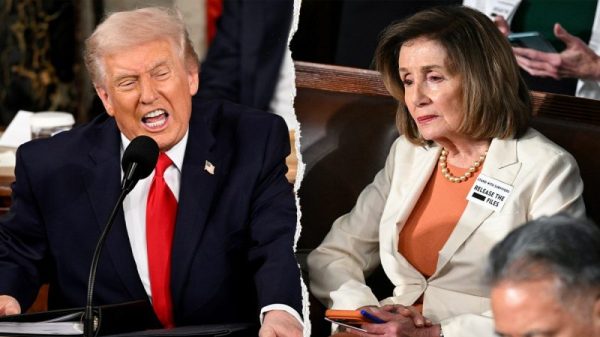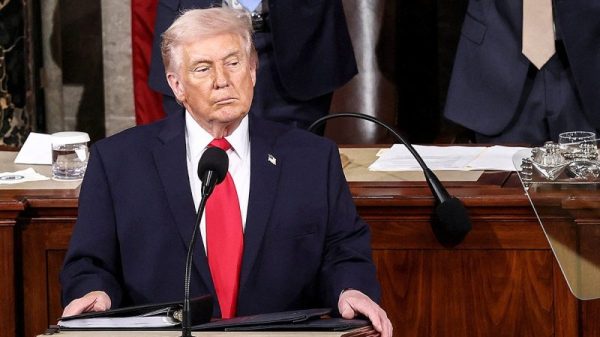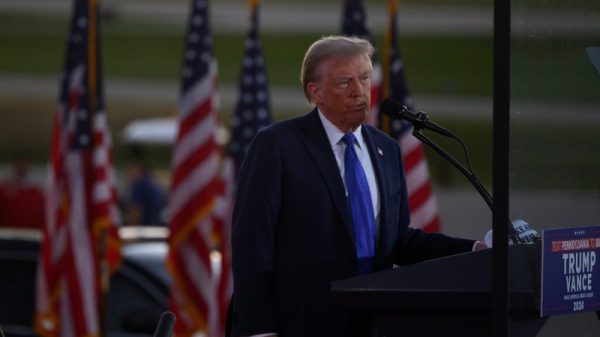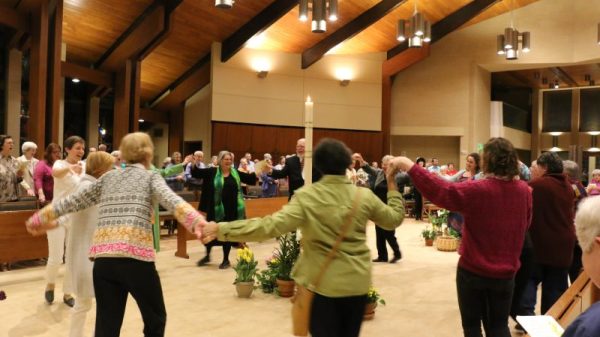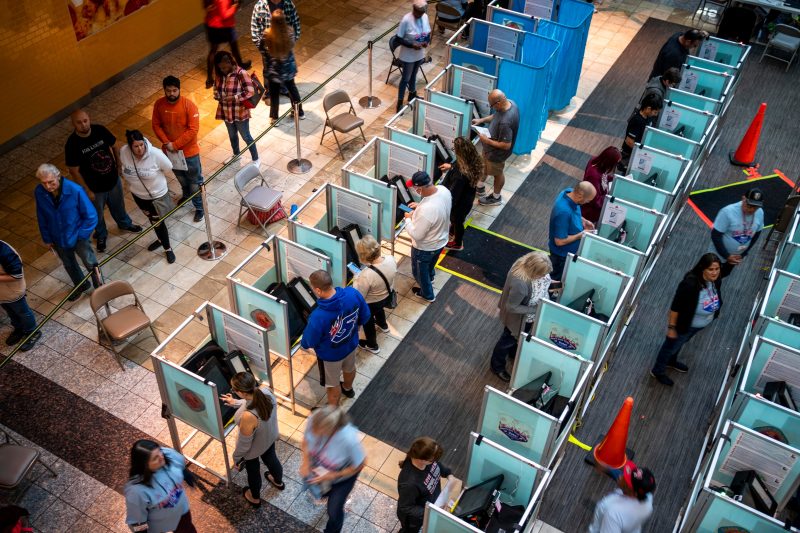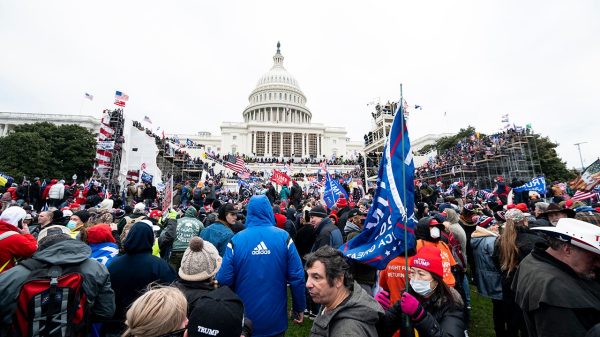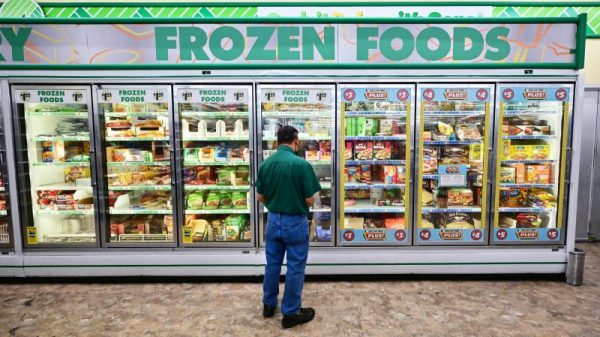Voting in Michigan will be easier for many people this fall than it was four years ago. There will be nine days of early voting. All mail ballots will have prepaid return postage. And every community will have at least one drop box for absentee ballots because of a measure adopted by voters with the support of the state’s top Democrats.
Those casting ballots in North Carolina, where Republicans enjoy a veto-proof legislative majority, will see dramatic changes in the opposite direction. For the first time in a presidential election, voters there will have to show an ID. More votes are expected to be thrown out because of new absentee ballot return deadlines. And courts will soon decide whether to allow a law to go into effect that would reshape the state’s elections boards and could result in fewer early-voting sites.
The two states illustrate how much voting has changed since the last presidential election. But whether Americans will have an easier or harder time casting a ballot than they did in 2020 will depend on where they live and, often, whether Democrats or Republicans have been in charge.
“It’s really kind of a tale of two democracies,” said Liz Avore, a senior adviser at the Voting Rights Lab.
States across the partisan spectrum abruptly changed their voting policies in 2020 to provide more options at the height of the coronavirus pandemic. Many eased the criteria for voting by mail, and some sent absentee ballot or ballot applications to all voters. Election officials installed ballot drop boxes, set up curbside voting programs and in some cases extended the deadlines for returning absentee ballots.
Former president Donald Trump has baselessly accused Democrats of using the loosened rules to rig the 2020 vote, turning election policy into the object of hyperpolarized disagreement.
Particularly in swing states, Republicans have generally pushed for tighter laws, such as voter ID requirements and limits on mail-in voting, in the name of election integrity. Democrats have advocated eliminating barriers that could suppress voter participation, including by making rules for registering to vote and casting ballots more flexible.
Some states have made the rules they established in 2020 permanent or further expanded options for voting. Others have enacted restrictions that go beyond what were in place before 2020 and made it easier to challenge others’ voter registrations and ability to cast ballots. Not all the rules are set yet; some could change because of last-minute legislation and a wave of litigation.
Nowhere are the changing rules more important than in the seven states most likely to determine the presidential election. Many of those states were decided by tiny margins in 2016 and 2020 and are again expected to be crucial.
Some voters may have a tougher time casting a ballot than they did in 2020 in the battleground states of Georgia and North Carolina, where Republicans hold legislative sway. Voting could be more difficult in Wisconsin, as well, but the picture in the state, which has a Democratic governor and a Republican-dominated legislature, may change soon because of cases pending before the state’s liberal-majority Supreme Court.
Voters will probably have an easier time voting than they did four years ago in two other swing states, Michigan and Nevada. In the latter, Democrats had unified control of state government until last year.
In Arizona, voting rules this year will be roughly the same as they were four years ago, while in Pennsylvania, some changes will make it easier to vote, and others will make it harder, according to a review by the Voting Rights Lab. In both states, control of state government has been divided.
“We’ve just seen really an unprecedented wave of elections legislation in the past few years,” Avore said. “The success of our democracy at large is going to depend on the ability of election officials to adjust to these new systems.”
Some of the changes since 2020 are sweeping. Others appear minor but can add up when combined with other tweaks to voting laws. “As a group, these laws have a big impact,” said Sean Morales-Doyle, director of voting rights at the Brennan Center for Justice.
Some of the most significant and contested changes have come in North Carolina.
Unlike in 2020, voters there will have to show a photo ID this fall. State lawmakers passed the voter ID law in 2018, but courts blocked it from going into effect. More than a year after the presidential election, the state Supreme Court struck it down. Months later, after Republicans took control of the court, the justices reinstated the voter ID law.
The state’s ID law is the strictest in the country when it comes to mail voting, according to the Voting Rights Lab. When voters return their mail ballots, they must include a copy of their ID along with the signature of a notary or the signatures of two witnesses.
Previously, mail ballots postmarked by Election Day were counted if they arrived up to three days later. Now, mail ballots must by received by Election Day. In last month’s presidential primary, more than 750 ballots were rejected that would have been counted under the old law.
Another recent change would make the state elections board and county elections boards evenly divided between Democrats and Republicans, rather than giving an edge to whichever party controls the governor’s office. A court has blocked that law, finding that it interferes with the powers of Gov. Roy Cooper (D), so they have kept their Democratic majorities. The Republican-controlled state Supreme Court could take up the case before the election.
A change to the makeup of the boards could be significant. The boards determine how many early-voting locations there are, and deadlocks could result in counties, including the state’s most populous and Democratic ones, getting just one early-voting site each.
New laws in North Carolina also give partisan poll observers more authority at polling places and make it easier to challenge ballots cast by mail and at early-voting locations. The ability to challenge ballots echoes a law in Georgia that has been used to question thousands of voters’ eligibility to cast ballots.
Election experts said such policies put a strain on election workers, forcing them to review challenges that are often based on hunches or faulty data. Often meritless, the challenges rarely result in preventing people from voting but could make some people less likely to vote, they said.
“It can be sending an intimidating message to voters,” Morales-Doyle said.
Georgia also has new voting rules since 2020. A law passed by the Republican-dominated legislature in 2021 drew headlines and criticism for a provision that limits handouts of water or food to those waiting in line to vote. That law also limits where ballot drop boxes can be placed while expanding early-voting opportunities in most counties. Despite the increased early-voting hours, some Georgia voters are still likely to face long lines this fall, according to the Voting Rights Lab.
A new measure, passed late last month on the last day of the Georgia legislative session, includes provisions that have sparked controversy but are not scheduled to go into effect until after the fall election. Among them is a ban that would take effect in 2026 on using tabulators that count votes by reading QR codes or other computer markings on ballots. Critics say the measure would make it impossible to use electronic tabulators to count votes — even hand-marked paper ballots because they typically include computer-generated markings. Gov. Brian Kemp (R) has not yet said whether he will sign the bill.
In Pennsylvania, voters are now added to the voting rolls automatically, but some absentee ballots are at risk of being thrown out.
Gov. Josh Shapiro (D) created a system last year that automatically registers eligible residents to vote when they obtain or renew a driver’s license, unless they opt out. In the last presidential election, mail ballots that were postmarked by Election Day but received up to three days after that were counted. This year, they must be received by Election Day.
Pennsylvania law requires voters to write the date they return their mail ballots on an envelope, and an appeals court recently ruled ballots could not be counted if they came in envelopes that were undated or had the wrong date on them. That will mean more ballots will get rejected this fall.
The voting landscape in Wisconsin has changed since 2020, but it may not be done shifting. In that election, municipalities set up hundreds of absentee ballot drop boxes in response to the pandemic.
More than a year later, conservatives on the state Supreme Court concluded state law doesn’t allow the use of drop boxes and barred their use for 2022 and beyond. Last year, liberals took control of the court, and they recently agreed to revisit that ruling. A decision is expected by the summer.
Republicans in the Arizona legislature have sought to tighten some voting laws, but Gov. Katie Hobbs (D) has so far blocked their efforts. GOP lawmakers are attempting to go around Hobbs to schedule a ballot measure this fall that would greatly restrict mail voting for future elections. Mail voting has long been popular in Arizona, and it’s unclear whether such a measure could pass.
In Nevada, officials used emergency provisions in 2020 in response to the pandemic to facilitate early voting. They sent mail ballots to all voters, established at least one drop box in every county, allowed third parties to collect ballots from voters and counted absentee ballots that were received by election officials after Election Day if they were postmarked by then. In 2021, Democratic leaders in the state made those policies permanent, meaning they will be in effect this fall.
Republicans and Democrats may spar over election rules, but some experts say there’s no reason their goals are necessarily at odds.
“There’s this push and pull between access and integrity,” said William & Mary Law School professor Rebecca Green, who specializes in election law. “I think both things are true: People can agree that eligible voters should be able to cast ballots and that those ballots should be counted securely.”
Amy Gardner contributed to this report.












